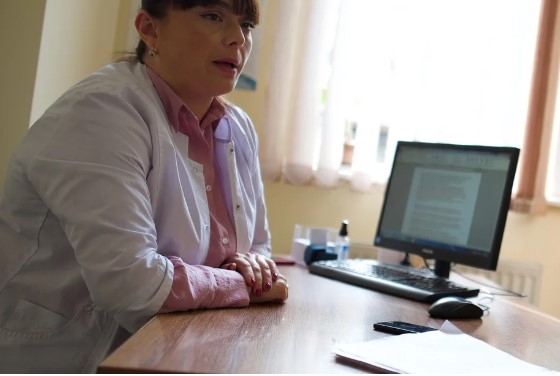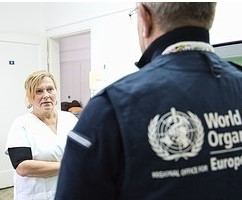The Long-Term Consequences of COVID-19: The Persistence of Its Shadow
Input
Modified
The Reality of Long COVID: Patient Narratives and Obstacles Unraveling the Science Behind Long COVID Managing Awareness, Rehabilitation, and Treatment Initiatives

The Reality of Long COVID: Patient Narratives and Obstacles
Although the COVID-19 pandemic has receded, its effects persist for millions of individuals worldwide in the form of extended COVID. A variety of symptoms that persist beyond the initial infection are indicative of this condition, which is also referred to as post-acute sequelae of SARS-CoV-2 infection (PASC). Those who have endured prolonged COVID-19 have reported a variety of incapacitating symptoms, including cognitive dysfunction, fatigue, respiratory complications, and cardiovascular complications. The struggles of those affected remain underappreciated, despite the tireless efforts of medical specialists to unravel its complexities. The comprehension of long-term COVID necessitates an examination of the ongoing challenges in treatment and care, the evolving research landscape, and the lived experiences of patients.
The most poignant insights into the lived reality of long-term COVID are provided by personal accounts. Dr. Alison Cohen, an epidemiologist at UC San Francisco, is not only a researcher in the field of long-term COVID, but she also experiences the disease firsthand. She elaborates on the condition's severe energy restrictions, which necessitate that patients meticulously regulate their daily activities. This struggle is frequently compared to "Spoon Theory," in which each task consumes a finite quantity of energy, and overexertion can lead to days of exhaustion.
In March 2020, Maya McNulty, a businesswoman from Niskayuna, New York, contracted COVID-19. Her testimony is another potent example. Everyday duties remain a challenge for her due to her ongoing cognitive challenges and extreme fatigue. She has become an advocate for increased research and recognition of the condition, as she is frustrated by the lack of understanding and effective treatments.
Dr. Ben Sinclair, a general practitioner and former triathlete, was compelled to suspend his active lifestyle because of the prolonged COVID-19 pandemic. The symptoms he experienced were memory loss, muscle weakness, and heart palpitations. He established an online clinic to provide holistic recovery approaches to his fellow sufferers after feeling abandoned by the healthcare system.
These accounts demonstrate a prevalent theme: patients frequently experience feelings of being ignored, and their symptoms are frequently misdiagnosed or disregarded. As long as COVID-19 remains an elusive and inadequately understood condition, numerous individuals have reported experiencing difficulty in obtaining appropriate medical care. The pursuit of recognition is not solely a medical concern; it is also a societal one that necessitates both systemic change and awareness.

Unraveling the Science Behind Long COVID
The scientific community has been endeavoring to comprehend the etiology of long-term COVID and the reasons why certain individuals are more susceptible than others. Numerous research studies have proposed numerous potential mechanisms, such as neurological disruptions, immune system dysregulation, and residual viral particles. Additionally, researchers are investigating the impact of autoimmunity, a condition in which the immune system mistakenly targets its own tissues following a COVID-19 infection.
One prevalent hypothesis is that SARS-CoV-2 may persist in the bodies of certain individuals, resulting in chronic inflammation and persistent symptoms. The virus has been detected in the gut, lungs, and nervous system in certain investigations months after the acute infection has subsided. This persistent immune activation may account for the protracted fatigue and cognitive impairment that numerous patients encounter.
Dysautonomia, or the dysfunction of the autonomic nervous system, is another frequently observed consequence of prolonged COVID. Patients have reported symptoms such as dizziness, temperature regulation issues, and fluctuations in pulse rate, which implies that COVID-19 may have long-term effects on nervous system function.
The long-term effects of COVID-19 on main organ systems are another area of concern. The condition has been associated with an elevated risk of blood clots, lung fibrosis, and cardiac inflammation (myocarditis and pericarditis), according to research. These results suggest that long-term COVID is not merely a protracted recovery phase, but a multifaceted syndrome that impacts numerous physiological systems.
Additionally, research endeavors are directed toward the identification of risk factors. Although COVID-19 can have a lasting impact on individuals of all ages and health statuses, certain demographics seem to be more susceptible. Individuals who were hospitalized during their initial infection, women, and those with pre-existing conditions such as diabetes or autoimmune disorders are at a higher risk. Furthermore, the significance of vaccination as a preventive measure is further emphasized by the fact that vaccinated individuals appear to have a lower incidence of severe long-lasting COVID symptoms.
Although these discoveries have been made, there is still no definitive diagnostic test for long-term COVID, which hinders patients' ability to obtain validation and appropriate treatment. Access to care for those afflicted is further complicated by the skepticism that this diagnostic ambiguity fosters among certain healthcare providers.

Managing Awareness, Rehabilitation, and Treatment Initiatives
Currently, treatment strategies are concentrated on symptom management rather than a definitive cure due to the intricacy of long-term COVID. Rehabilitation programs are experiencing an increase in popularity, as numerous medical institutions are providing multidisciplinary approaches that encompass cognitive rehabilitation, physical therapy, and psychological support. The objective of these programs is to assist patients in regaining their functionality; however, their availability is restricted, resulting in a significant number of patients lacking sufficient resources.
Additionally, certain pharmaceutical interventions are being investigated. Antihistamines, anti-inflammatory drugs, and extended courses of the antiviral medication Paxlovid are currently being evaluated for their ability to alleviate symptoms. The research conducted at UC San Francisco has indicated that an extended regimen of antiviral treatments may be advantageous for certain long-term COVID patients in order to mitigate their persistent viral remnants.
Recovery is also influenced by holistic and integrative health approaches. Acupuncture, graded exercise therapy, mindfulness techniques, and dietary adjustments have been investigated as methods of symptom management. Although no single treatment has been universally effective, numerous patients have discovered that a combination of therapies that are customized to their individual symptoms produces the most favorable outcomes.
Additionally, there has been an increase in the momentum of advocacy and awareness initiatives. Organizations and support organizations are advocating for the increased acknowledgment of long-term COVID as a serious and legitimate condition. Governments and public health institutions are being encouraged to allocate additional funding for the development of treatments and research. Some regions have initiated the provision of extended COVID clinics, which offer specialized treatment to individuals who are experiencing persistent symptoms.
Nevertheless, substantial obstacles persist. Many insurance providers do not provide comprehensive coverage for protracted COVID treatments, necessitating that patients pay for specialized care out of pocket. The mental health burden is also significant, as numerous individuals experience psychological distress, social isolation, and job loss as a result of their persistent health issues.
Urgent attention is required to address the ongoing public health crisis that is Long COVID. The emotional and societal challenges that the condition brings are underscored by the accounts of those affected, in addition to the physical toll. Although research is revealing critical insights into the causes and mechanisms of long-term COVID, effective treatments are still elusive, and access to care is inconsistent.
The path to recovery for COVID-19 patients who have been ill for an extended period is frequently characterized by resilience, uncertainty, and frustration. There is optimism that improved diagnostic tools, targeted treatments, and comprehensive support systems will emerge as scientific advancements and awareness continue to expand. Until then, it is imperative to acknowledge the challenges faced by long-term COVID patients and to advocate for increased research and healthcare accessibility in order to effectively address this intricate and extensive condition.





















